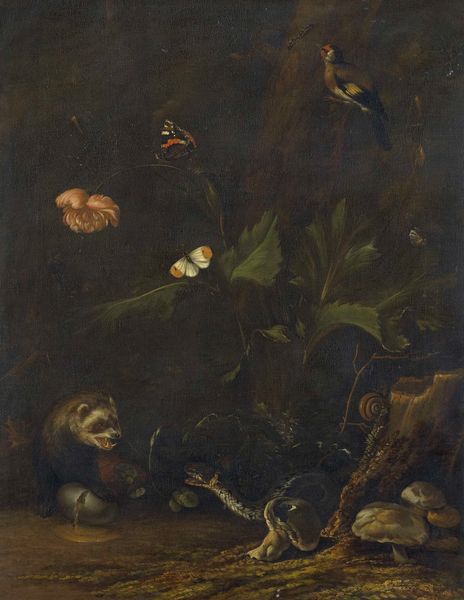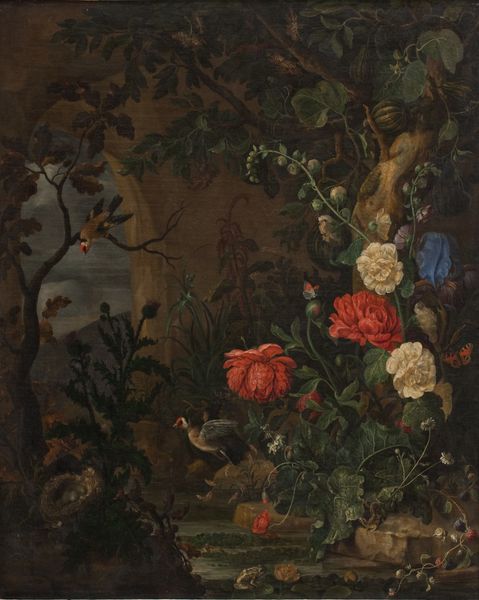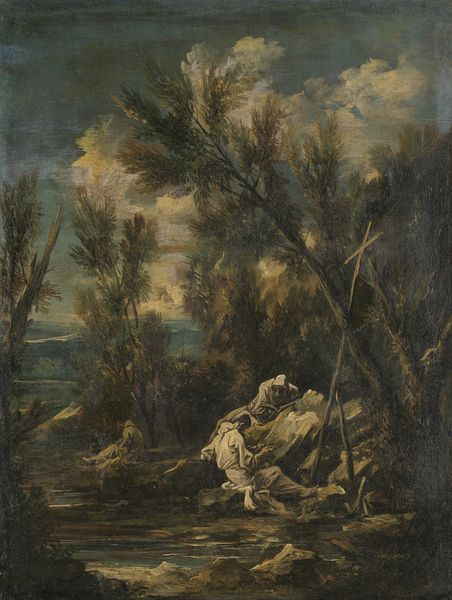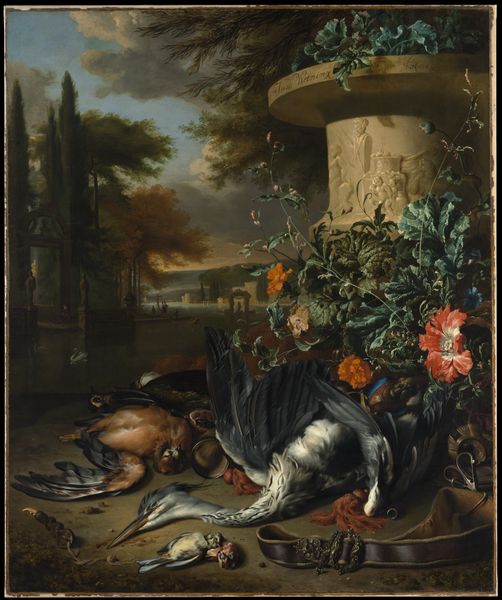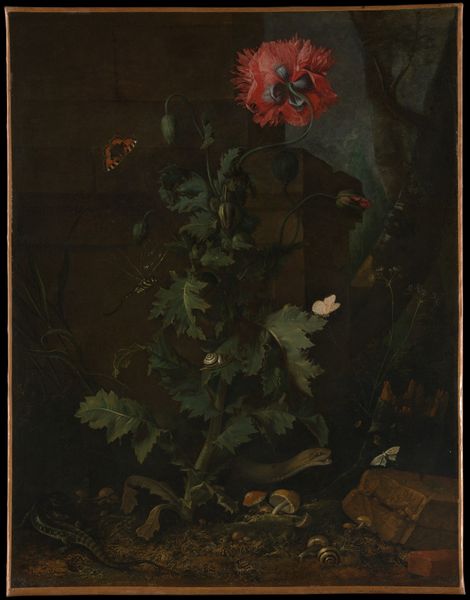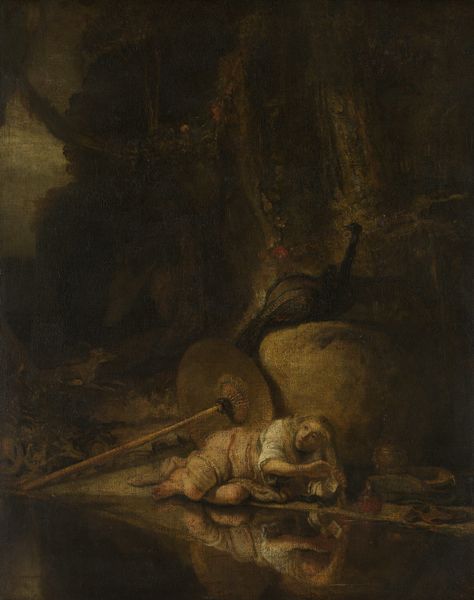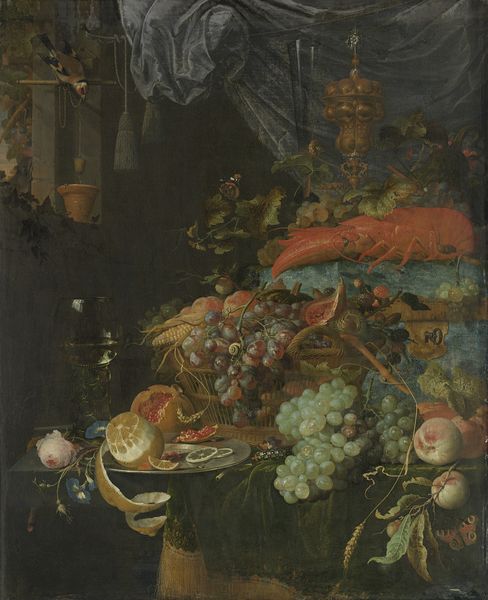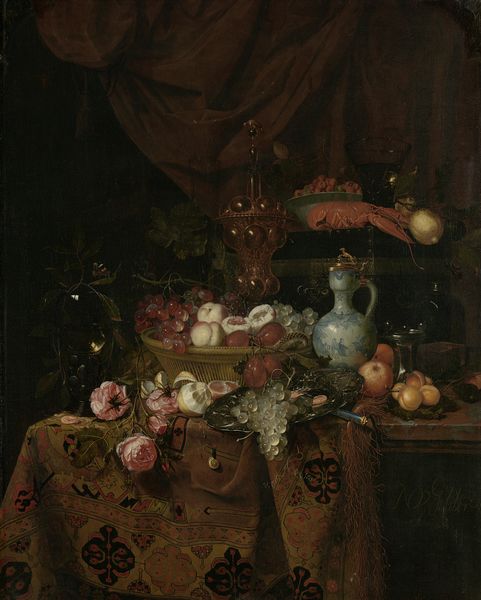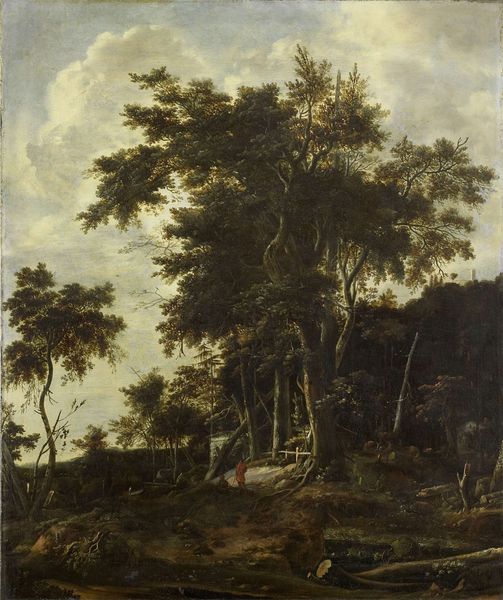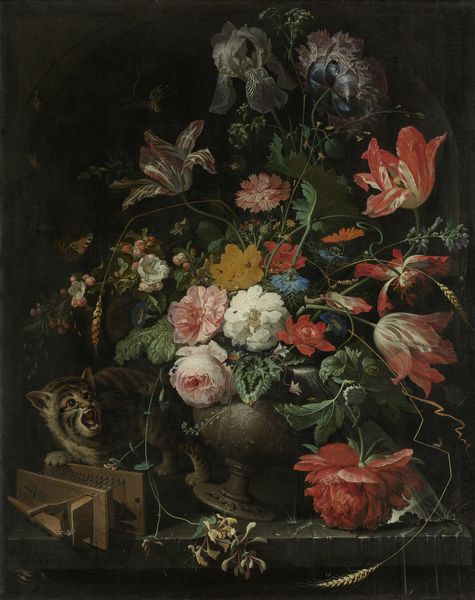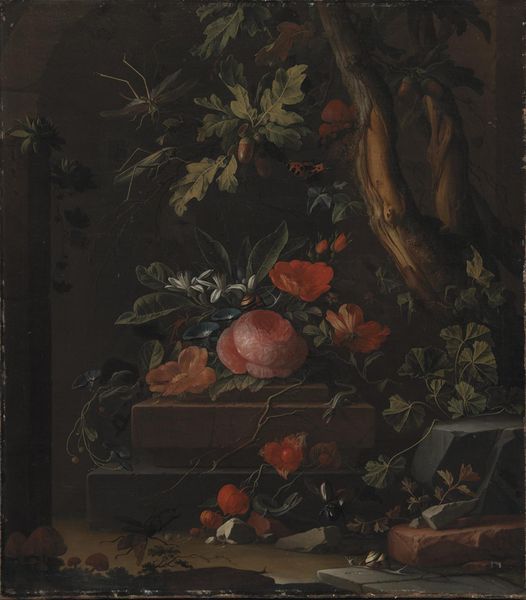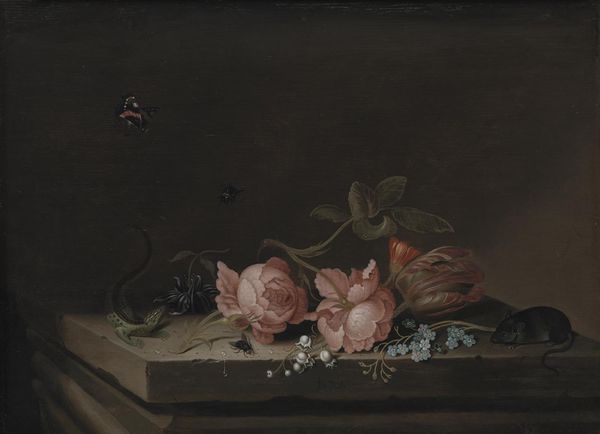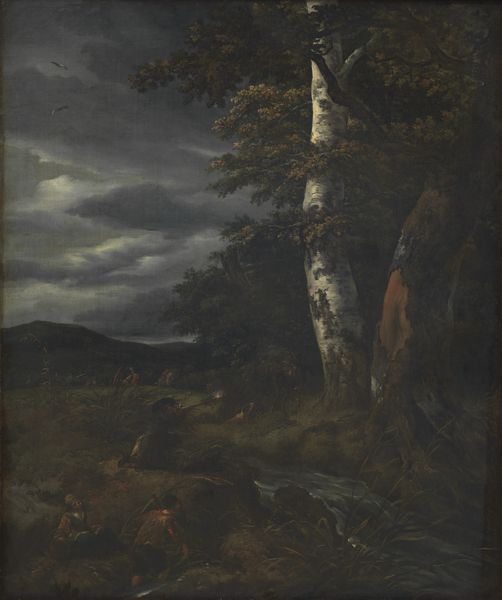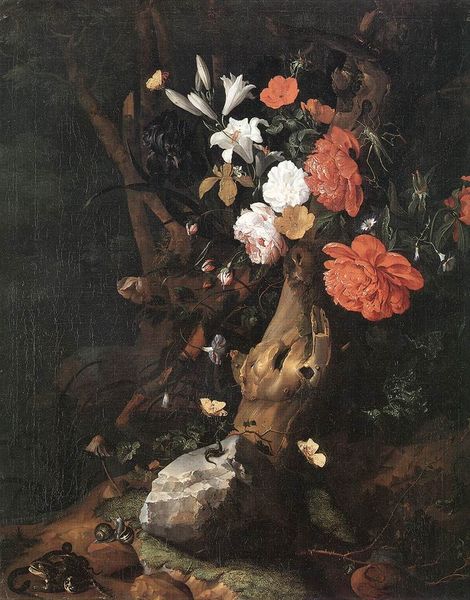
painting, oil-paint
#
painting
#
oil-paint
#
landscape
#
oil painting
#
romanticism
#
watercolor
#
realism
Copyright: Public domain
John Crome painted this intriguing oil on canvas, titled 'An Egyptian Poppy and a Water Mole,' in England during the late 18th and early 19th century. It brings together elements of the natural world within a carefully arranged composition. Look at the way Crome has depicted the poppy. With its exotic designation, it elevates the local landscape into something more universal, referencing England's growing empire and interests in global trade. Simultaneously, he includes a common water mole, rooting the image in local fauna. Crome was a founding member of the Norwich School of painters, a group who intentionally distanced themselves from the Royal Academy and London art institutions. The group was known for its close observation of nature and the countryside, and, as such, this work could be seen as a comment on the local landscape's value as a source of artistic inspiration. Delving into the social history of art involves exploring the nuances of artistic movements and regional identities. By consulting historical records, exhibition catalogues, and artists' biographies, we gain a deeper understanding of the context in which art is created and interpreted.
Comments
No comments
Be the first to comment and join the conversation on the ultimate creative platform.
